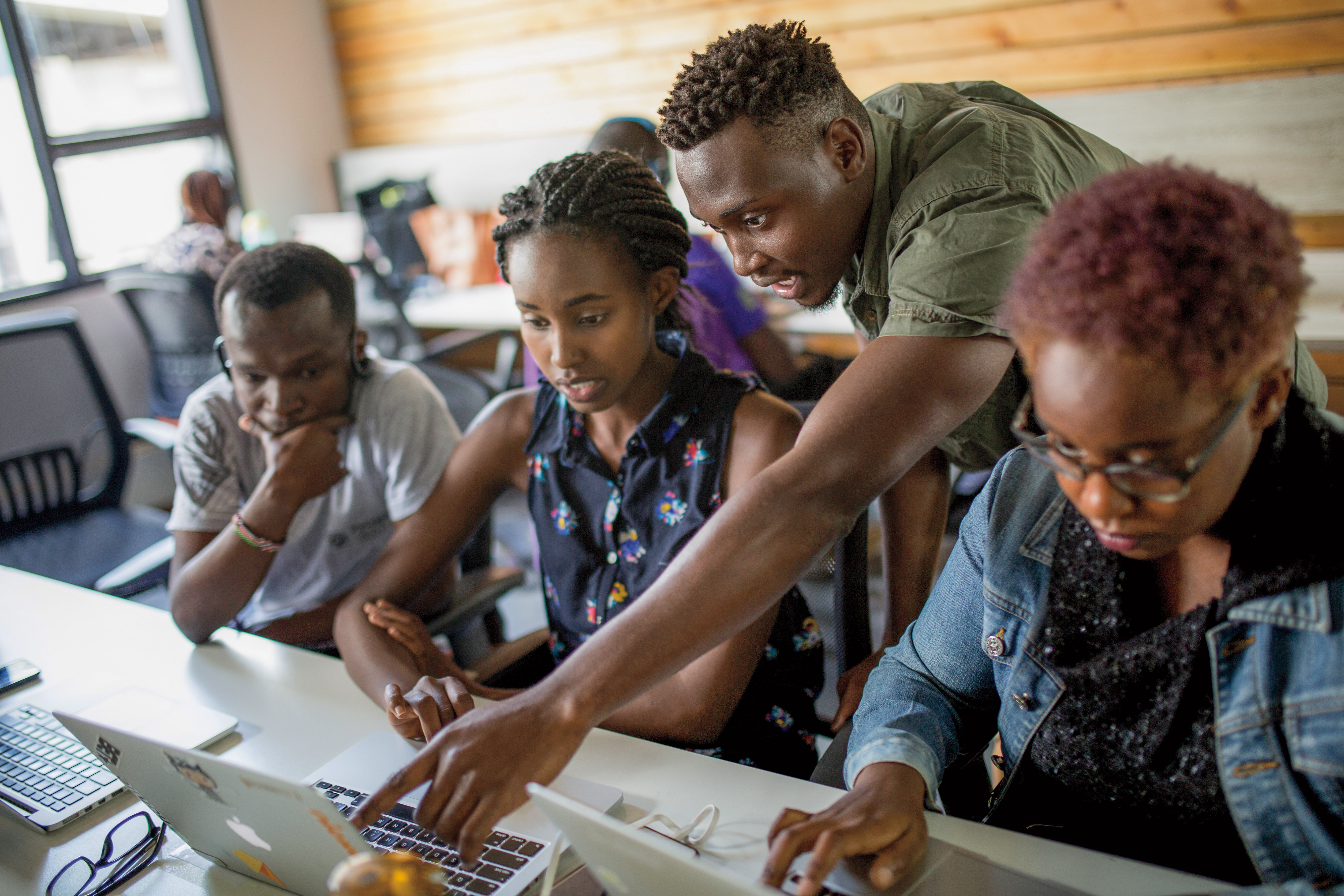Results
- The project created 125,000 direct jobs and 30,000 indirect jobs, significantly boosting youth employment across Kenya.
- More than 145,000 young Kenyans participated in the program, displaying an increase from 70% (pre-participation) to 85% employment rate (post-participation) through the program.
- Tracer studies and impact evaluations revealed that beneficiaries had 50% higher earnings thanks to the program.
- Beneficiaries of the business support track received training, coaching, and small grants to launch their businesses.
- While comparing with control groups, KYEOP impact evaluations showed that project beneficiaries achieved higher business start-up rates (65%), greater business survival rates (85%), higher sales (91%), and higher profits (90%).
The Challenge
Kenya faces a growing youth employment challenge, with nearly 80 percent of its population under 35 working in informal, low-quality jobs that offer little security or opportunity for advancement. About 85 percent of youth rely on informal work, contributing to cycles of poverty and inequality, and preventing youth from accessing wage employment and entrepreneurship opportunities. Young women are especially affected: they make up the majority of those not working or studying and face greater barriers to finance and formal jobs. In arid and semi-arid regions, including areas hosting refugees, limited infrastructure, climate shocks, and weak job markets further reduce opportunities. The mismatch between the skills young people acquire, and those required by the labor market, makes it increasingly difficult for them to secure stable employment.
WBG Approach
The World Bank Group supported the Government of Kenya in the design and implementation of the Kenya Youth Employment and Opportunities Project (KYEOP) to address barriers preventing young Kenyans from accessing quality employment. The KYEOP combined skills development, work experience, and entrepreneurship support to boost employability and create jobs. Youth received training in life skills, core business skills, and on-the-job training, followed by structured internships in the formal sector and apprenticeships in the informal sector with master craftsmen. The project also supported young entrepreneurs through seed grants, business development services, and a business plan competition for high-growth entrepreneurs. Training providers and craftsmen were incentivized to deliver high-quality training and secure placements for participants through a results-based financing model. KYEOP also addressed labor market intermediation challenges, establishing a central platform to connect youth with jobs, and strengthening the government’s capacity to develop and implement youth employment policies through a refined Labor Market Information System.

